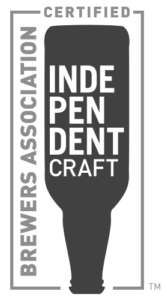
Brewers Association’s Independent Craft Brewer Seal
This week, the Brewers Association unveiled a new independent craft brewer seal. The seal is intended as a marketing tool to attract consumers looking for truly independent craft beers. Any brewer meeting the Brewers Association’s 3 criteria is eligible to use the seal:
- Have a valid TTB brewer’s license
- Meet the Brewers Association’s definition of “craft brewer”
- Sign a license agreement for use of the seal
The independent craft brewer seal is a great example of the use of trademark law to distinguish specialized products from the mass market. Trademarks like this, which are known as certification marks, can be used by trade associations, businesses and governmental agencies to promote food and beverage products meeting standards that appeal to consumers. For example, the Non-GMO Project Seal certifies that food and beverages meet that organization’s standards for avoiding genetically engineered foods. The USDA Organic Seal certifies that foods meet organic food production standards. Other certification marks signify that products are kosher, gluten free, adhere to animal welfare standards, or come from a particular geographic location.
Certification marks can be valuable intellectual property and powerful marketing tools if used and protected appropriately. They can be created by any entity willing to create and enforce a set of standards.
From a legal perspective, the certifying entity should secure its rights in its certification mark by registering the mark with the US Patent and Trademark Office and by controlling the use of the mark. Registration provides nationwide rights in a mark and helps to prevent other people from using confusingly similar marks.
To maintain rights in a certification mark–as with any trademark–the owner must control the use of the mark to ensure that it is used only on products meeting the certifier’s standards. Such control also is essential to the credibility and consumer acceptance of the mark. For these reasons, it is very important for a certifier to have written licensing agreements with anyone permitted to use a certification mark and to not allow others to use the mark (or a similar mark) without such a license. Licensing agreements need not be complicated, but they must specify conditions for the use of the licensed mark.
